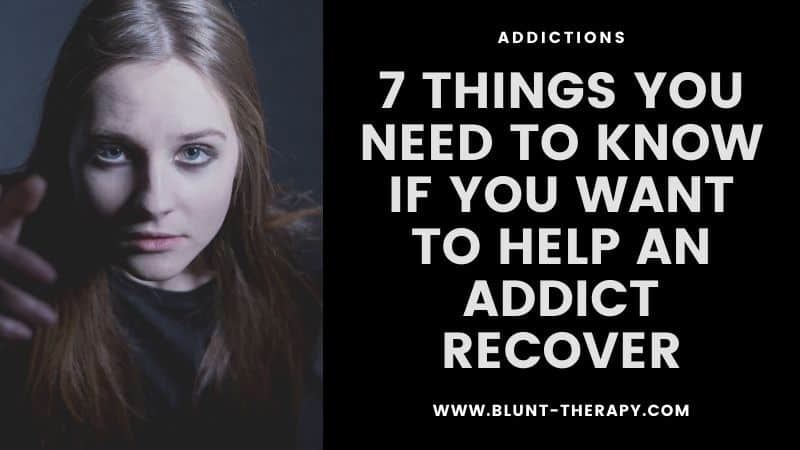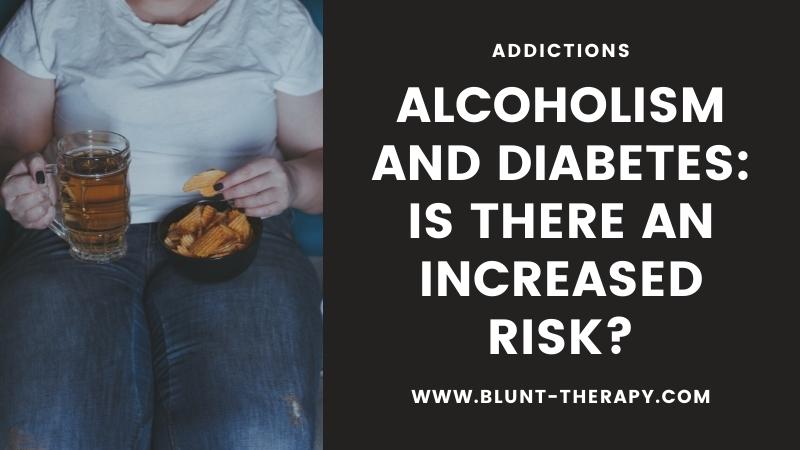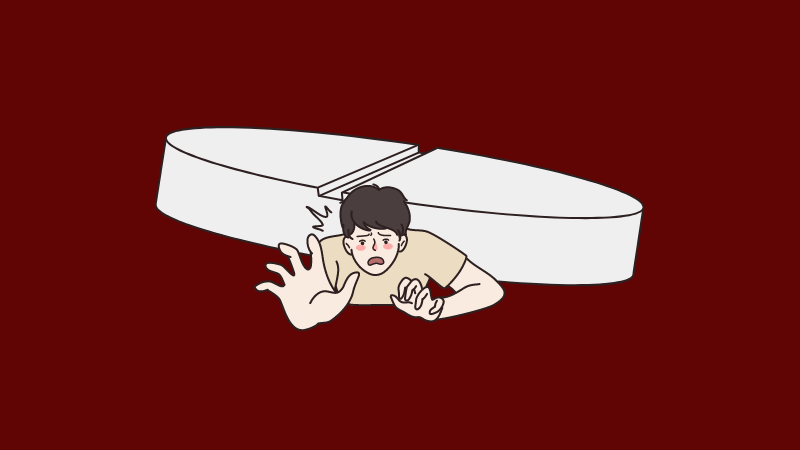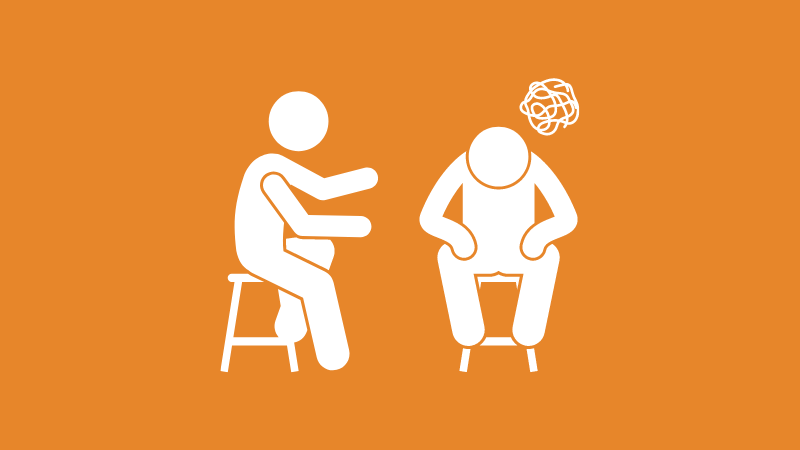Table of Contents
Affiliate link notice: As an affiliate of BetterHelp and other third-party vendors, We will receive compensation if you make a purchase using the links provided on this page. For more information, visit our disclosure page.
Last Updated on June 23, 2023 by Randy Withers, LCMHC
If you’re reading this, it’s likely because you think that you have a problem with marijuana.
It didn’t start out that way, did it? Addictions never do. But you’ve reached a point where you know you need to make a change, but you don’t know how to quit smoking weed.
After all, it’s been part of your life for so long. How can you live without it?
Guess what? You can.

Should You Quit Smoking Weed?
In the US, marijuana has been legalized or decriminalized in two dozen states. Weed has been normalized. Most people who smoke it don’t even consider it a drug. It’s natural. It’s from the Earth, man.
But is weed harmless?
The answer depends on who’s smoking it.
Yes, marijuana has many benefits. It can reduce anxiety, help with PTSD, and relieve pain. It can even benefit those suffering from terminal illnesses. It’s also an excellent alternative to opiate-based pain killers like Hydrocodone.
But if marijuana has become a problem for you, it doesn’t really matter if it helps cancer patients. What matters is this: if marijuana has made your life unmanageable, you need to quit smoking it.
For you, smoking weed might have been fun. It probably provided an escape from the stresses of life.
But, in the long run, were the side effects really worth it?
The paranoia, the inability to function like you used to, the distorted view of reality? Or the restlessness you feel when you can’t get it? The feeling of not being okay without it?
The first step in overcoming any addiction is admitting that you have a problem. The fact that you are reading this says you have already jumped over that most important hurdle.
If that’s the case, read on to learn how to quit smoking weed and eliminate it from your life.
Tip 1: Get Rid of It
The best and most important way to quit smoking weed is to get rid of what you have.
It’s simple. If you don’t have it, you can’t smoke it.
Throw it away, flush it down the toilet, or give it away – the choice is yours.
Whatever you decide to do, you will feel a lot better not having weed in your house. Out of sight is out of mind.
And while you’re at it, consider discarding any paraphernalia, posters, or clothing that promotes marijuana. The idea here is to sanitize your life and remove anything that might act as a trigger.
You won’t be able to remove all triggers from your life, nor will you be able to predict what will or will not trigger you. But you can increase your chances of success by making some smart choices.
Getting rid of the weed is definitely the most important step.
Benefits:
- Reduces temptation
- helps to manage obsessive thoughts and compulsive actions
- Less triggering.
Tip 2: Change People, Places, and Things
Avoid people, places, or things that make you want to smoke weed. If you’re going to quit smoking weed, this is an absolute must.
I’ll be honest, though – it’s tough to do.
But it’s vital that you take a long, hard look at your life and remove anyone or anything that makes you want to get high.
If you have friends who smoke weed, spend time with other people who aren’t using it. I know, that’s a hell of a thing to suggest, but for the time being your goal should be to avoid triggers. And friends who smoke weed are a huge trigger.
If you hang out with people who smoke, you WILL start smoking weed again. Period.
You should also avoid people who you want to smoke weed. You know who I’m talking about.
Purge your life of toxic, triggering people – vengeful, exes, intolerant family members, dramatic friends. to Hell with them. they don’t add value to your life.
Support groups like Narcotics Anonymous or SMART Recovery are a great place to start. You’ll meet tons of people who are trying to do the same thing you are.
Don’t go to places where weed is a thing. You know what I mean.
Your friend’s apartment. The local headshop. Vape stores. Sketchy gas stations.
Avoid them. At least for now. In the beginning, your defenses are weak. Over time they’ll develop into a fortress, but for right now go out of your way to protect yourself.
Finally, get rid of things in your life that you associate with marijuana.
If you watch “stoner movies,” find something else to watch. If you listen to “stoner music,” avoid that, too.
Throw away paraphernalia. I don’t care if you love that pipe – it’s a temptation, plain and simple.
And this bears repeating – throw out your weed. All of it. Immediately. If you don’t have it, you can’t smoke it.
Benefits:
- Reduces negative peer influences.
- Reduces triggering behaviors.
- Limits means and availability.
Tip 3: Eat Nutritious Foods
Eating healthy is a great way to cleanse your body of toxins. It also helps manage your withdrawal symptoms.
Drugs rob the body of vitamins and minerals, particularly B complex, vitamin C, calcium, and magnesium. To combat this, eat fresh vegetables, whole grains, and lean meats. Avoid sugar, simple carbohydrates (like white bread) and fast food.
And drink water. On average, men need to drink about a gallon of water a day. For women, it’s about 3/4 of a gallon. Flush the garbage out of your system. You’ll feel better.
Consider adding a multi-vitamin (talk to your doctor first) as well. Remember: your body needs to heal. Your lungs, in particular, have not benefitted from all that smoke. Take steps to repair them. After all, they keep you alive and breathing.
First, it’s just one of those life skills you need to know. You’re not a child anymore. There’s no shortage of tutorials and recipes on the internet.
Your significant other will also be overjoyed. Nothing like a partner who can cook. And nothing as depressing as one who can’t. Fellas, I’m talking about you, too.
Second, cooking your own meals helps you better manage calorie intake and better understand what you’re putting into your body. It’s also a great way to distract yourself from thoughts of using.
Benefits:
- It helps with mental clarity.
- Flushes toxins.
- Promotes cell growth
- Reduces withdrawal symptoms.
- Gets your mind off using.
Tip 4: Start Exercising
Along with eating healthy, exercise is another great way to help the body get rid of toxins. You will be able to sweat the weed out!
Research has shown that exercise can help to reduce cravings. It can also help restore healthy brain function.
In addition, exercise reduces anxiety stress. If you use weed to self-medicate, exercise can serve as a healthy alternative coping device.
Finally, be mindful of something called PAWS, which stands for Post Acute Withdrawal Syndrome. It’s a period of time that can last 1-2 years after you stop using where you may notice an increase in anxiety and depressed mood. It’s a natural part of the process but uncomfortable nonetheless.
Exercise helps. Studies show 20 minutes of walking each day dramatically reduces symptoms of depression. And it’ll get you out of the house. It’s difficult to pack a bong while you’re working up a sweat.
Benefits:
- Reduces withdrawal symptoms.
- An excellent way to manage your mental health.
- Distracts from thoughts of using.
Tip 5: Start a New Hobby
Take a moment and think about the number of hours you’ve wasted being high. There’s no glass-half-full way of looking at it – you wasted that part of your life smoking weed all the time.
People give up their lives to chase a high. They drop out of college, turn down jobs, and avoid relationships to maintain their habits. It’s tragic. Talk about misplaced priorities.
Does that describe you?
If it does, put your time and energy into a new hobby. Let me explain.
Many people turn to weed out of boredom. They also, of course, use it as an escape. It’s a time killer. It helps you deal with stress.
But there’s a difference between enjoying some downtime and building a life around a bad habit. When you meet your maker, do you really want to look back on your life and realize that the only thing you ever did of note was roll fat blunts?
Give me a break. Of course you don’t.
If you want to quit smoking weed, lose yourself in a new hobby.
Hobbies get a bum rap. You think of hobbies, you think of some guy in his basement collecting dead bugs.
But a hobby can be almost anything. It’s a focus on an activity about which you are passionate. Exercise and cooking are absolutely hobbies for many. Do you know what else is? Recovery.
What is your passion?
If you know what it is, why aren’t you pursuing it? What are the barriers?
If you don’t know, give it some thought. We’ve all got something we love to do. ASll of us. Everybody on the planet. You are no different. Weed may have dulled your senses, but that lust for life you once had is still there. you just have to find it again.
As with some of these other tips, a hobby keeps your mind on something positive and off smoking pot. Don’t underestimate its importance.
Find something you love doing, then do it. Your mental health will thank you for it.
Benefits:
- It helps you focus on something positive.
- An excellent way to distract yourself from thoughts of using.
- Purpose and meaning are excellent antidotes to anxiety and depression.
Tip 6: Build a Support System
Support systems tend to fall into one of two categories – social supports and professional supports. Both are beneficial but in different ways.
Social Support Systems
Social Support comes from your family, friends, and community. Your parents, your siblings, your spouse, your next-door neighbor – these are all people who fall into that category.
These are people who provide emotional support, as opposed to the clinical support you get from a nurse or a doctor.
Support from family and friends is the number one predictor of longterm success in recovery. It’s also one of the best tools you can use to quit smoking weed.
Encouragement and accountability are important parts of the equation as well. It always helps to know that others are invested in your success as much as you are. A rising tide lifts all boats.
Let your loved ones know that you have stopped smoking. They can help you avoid people and situations that can be dangerous or triggering. They can also keep you company when times get tough.
In general, family and friends want what’s best for you.
And if they don’t? Add them to the list of toxic people in your life that you need to discard. That sounds harsh, but we don’t really have a choice. Toxic people bring out the worst in you, and that includes drug use.
Alcoholics Anonymous and Narcotics Anonymous are also social supports. Meetings for each are wildly available in most countries. They are free and attended by other people who mare in recovery.
Professional Support Systems
Professional support comes from counselors, therapists, doctors, social workers, and the clergy. These are people who have specialized training in their respective fields. They can provide you clinical support and direction.
Often, social supports are either lacking or insufficient. People sometimes need prescriptions, referrals to government services, and medical care. Family and friends aren’t normally equipped to do that.
The disease of addiction is extremely complicated and confusing, even to professionals. Family members, while well-meaning, normally lack the understanding necessary to provide the type of assistance many need to break the cycle of addiction.
People who smoke marijuana are often self-medicating serious mental health issues like Major Depressive Disorder, Panic Disorder, or PTSD. These often require professional interventions.
Therapy can be a great tool for your recovery. A good therapist can also help you develop skills to cope with urges, manage stress, and practice self-care.
There are a few different types of mental health treatments that are particularly useful for those who want to quit smoking weed: cognitive-behavioral therapy and motivational enhancement therapy are two of the more common.
It’s a good idea to read about them. Both are enormously helpful.
When it comes to therapy, you’re going to have several options. These are some of the options you should consider:
- Traditional face-to-face counseling or psychotherapy (usually 2-4 times a month for an hour).
- Group therapy, often called SAIOP which stands for Substance Abuse Intensive Outpatient Treatment. Usually 6-9 hours a week.
- Online Counseling with licensed therapists on sites like Online-Therapy.com and BetterHelp. You can get weekly or monthly memberships and use it as needed.
- Inpatient Rehab facilities. The length of stay varies according to need.
Benefits:
- Proven predictor of long-term success in recovery.
- Provides support and accountability
- It Helps keep you focused and goal-oriented.
Tip 7: Set Goals and Track Your Success
Set a goal to quit smoking weed and to stay off it for 12 months. At the end of that time period, evaluate your life. Is it better now or worse?
If it’s worse, go back to smoking weed. Seriously. The end result of recovery should never be misery.
I suspect that your life will be better. You’ll have more money, more clarity, a better quality of life, more health. It’ll be tough at first, but anything worthwhile is. We don’t value anything that comes easily to us.
Set a goal to quit cold turkey, or wean yourself off bit by bit. Cold turkey is the better option, but you get to decide what works best for you. Either way, you’re still making a good decision.
You can also set goals for what you want to do with your life once you’ve quit smoking weed. You’ll probably find that you’re able to achieve so much more once you’ve kicked that worthless habit.
Remember – you don’t need it. you only think You do. Show the weed who’s boss. Make a plan, stick to it, and enjoy the rewards of your efforts.
Benefits:
- Goals keep you motivated and focused.
- Helps you track progress.
- They give you a way to see progress. Let’s you know if you’re on the right track.
Final Thoughts
There are many ways to quit smoking weed. It’s not like you don’t have choices.
But don’t make it any harder than it has to be.You’ll likely deal with irritability, trouble sleeping, mild depression, night sweats, and loss of appetite. It’s not realistic to think you can avoid all the negatives when you quit smoking weed.
But if you follow the suggestions above you’ll find that it’ll be much easier to quit smoking weed and that you’ll be less likely to relapse once you start.
Remember – it’s not enough to quit an addiction. you have to replace it with a healthier alternative and take care of yourself while your body and mind adjust to the change.
Heed these suggestions. It’ll make your life a lot easier.
Quit Weed: The Complete Guide
Learn How To Quit Weed Without Withdrawals Or Sleepless Nights.
60 Day Money Back Guarantee
References:
- How Long Does Withdrawal From Marijuana Last?
- Acute Effects of Marijuana Smoking on Negative and Positive Affect
- Adverse Health Effects of Marijuana Use









I think, that with a proper will, or a hard work, it is possible to program your mind and body to act differently. But for sure it’s not some easy trick to solve your problems. I tried to quit smoking many times, I always thought that this one would be the right one, and because of some good luck I will never smoke again. It was very simillar like with lottery game. With every coupon you think that this time you will get the jackpot. But like in lottery, in real life the jackpots are very rare. Finaly I quit smoking after a hard work and thanks to a guidlines from a book by Robert Jenkins (net-bossorg/the-easiest-way-to-quit-smoking-for-life).
Thanks for writing this, Randy. People don’t want to admit that pot can be addictive, but it really can be. I tried to quit for years but the thing that really helped was actually the quit smoking weed program you mention. It was surprisingly helpful. I think the fact that I actually committed financially to a course of action was what helped me. It’s certainly worth trying and def a lot less than smoking a quarter of weed every few days.
Thanks for sharing this.